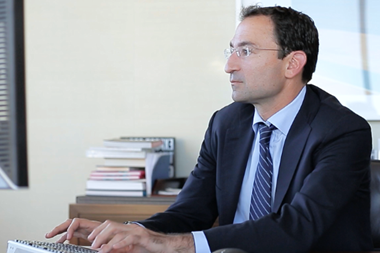This has been a year to forget so far. On 20 February, global equity markets plunged in a crash rivalling the 2008 downturn. Though they have rallied thanks to central bank support, hopes for a Covid-19 vaccine and a rebound in business activity as governments ease lockdown, things could take a turn for the worse.

In April, the IMF revised its global GDP growth forecasts to -3%, but it has since warned that this is likely to be unduly optimistic. Germany and Japan are already in recession, the US economy is set to contract by 5.7% (having lost a staggering 35% this quarter) and the Eurozone can expect to lose 7.5 percentage points off its GDP. The UK is in a particularly bad spot, with the Bank of England forecasting a 14-point contraction this year.
Analysts expect all economies – including the UK’s – to bounce back in Q3, with steady growth forecast to the year end and for 2021, though it will by no means make up for what is lost. So, is 2020 going to go down in history as the annus horribilis to forget?
Though it probably will, all clouds have a silver lining. In this case, it is that it has forced us to take a long hard look at the way we do things. This might be the catalyst for the acceleration of tech adoption in real estate.

In one fell swoop, we were all plunged into smart working, and for many there is no going back. Covid-19 is forcing office owners and operators to rethink the way they use space because it is no longer possible to maximise occupancy per square metre. But they likely won’t have to.
We will never do away with working from the office altogether – nor should we – but in a post-Covid world, companies will no longer have to plan according to a ‘one desk per person’ logic, and this will allow space use to be maximised in a different way.
This requires tech to work properly. How else will we book a desk when we plan to be in the office, or know a meeting room has been cleaned beforehand, if not through a customer or tenant app? How, if not through use of sensors and property management portals, will operators deliver the seamless organisation and maintenance required to keep everybody safe?
The same principle applies to the worksite. One of the biggest problems construction firms face is making sure staff are safe at all times from a set of risks that now includes Covid-19.
So expect a rise in the adoption of site-safety technology, paired with workflow management, to ensure that all parts of the construction process are being managed in the safest and smartest way.
It is no surprise that remote conferencing providers such as Zoom have had massive increases in usage and their valuations. But there’s more. As we get used to doing more remotely, transactions will become increasingly digital, from viewing, through to the valuation process and contracting.
These changes would have happened anyway sooner or later, but Covid-19 is accelerating the pace of adoption – a silver lining indeed to the annus horribilis that is 2020.
Angelica Donati is the chief executive of Donati Immobiliare Group
































No comments yet